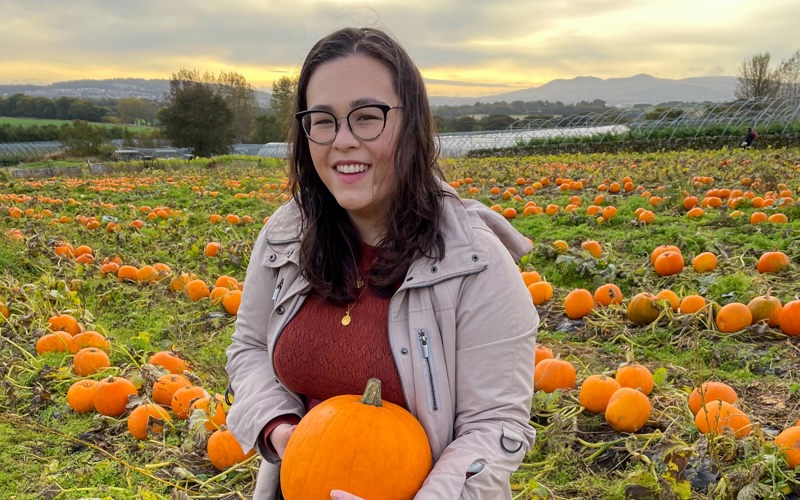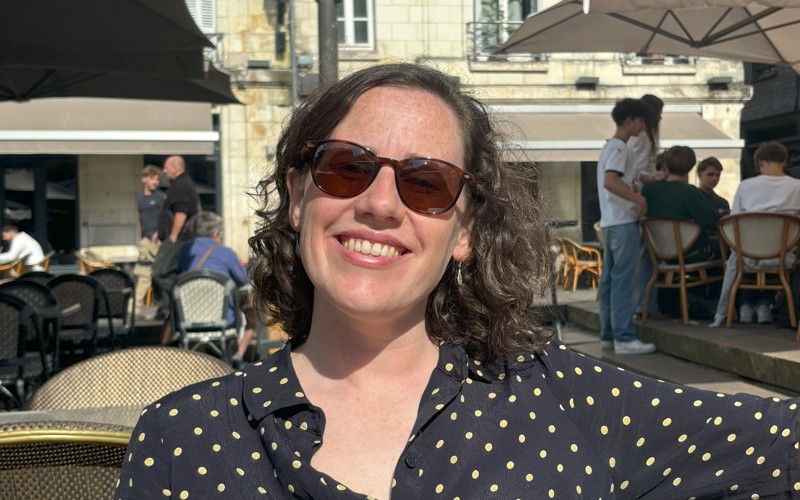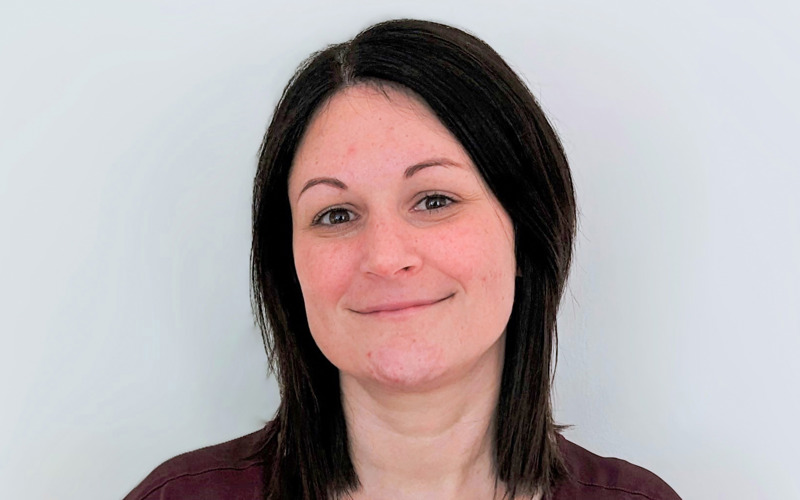
Five minute profile: interview with Vicki Madden
Our interview series shines a light on what it’s like to work at RDS. We spoke to Vicki Madden, Content Designer, about the highlights and challenges of her role.
Research Data Scotland
27 Oct 2023

Research Data Scotland
03 Nov 2023
Our Chief Data Officer Nora talks to us about her role, and how making life easier for data controllers, researchers and our partners means they can spend time on what matters — getting the most out of Scotland's data!
I’m the Chief Data Officer at RDS and I oversee the data and programmes teams. Typically, I spend a lot of my workday in meetings – either catching up with the team and hearing how their work is progressing or speaking to external bodies about projects we’re working on together.
Our partners are essential to our work and a day rarely goes by where I don’t speak to colleagues in Scottish Government, National Records of Scotland, EPCC, Public Health Scotland or Scottish Centre for Administrative Data Research. These colleagues are experts in their field and it’s always fantastic learning from their vast knowledge and experience.
We’ve also been working with these partners to review how data is ingested and stored in the National Safe Haven and where efficiencies and improvements could be made. I try to get out to conferences and external events as much as possible too, to hear about the rapidly evolving data research landscape across the UK.
Since April 2023, RDS has received additional funding from Scottish Government to support the delivery of the ADR Scotland programme on practical data work around data ingest and update. We’ve expanded the team to deliver on this programme of work and I’ve been delighted to recruit such brilliant people.
I did a Masters in public health & epidemiology 10 years ago and that started my love of all things health data. Since then, I’ve worked around public health intelligence teams in local government, at a national health think tank and at the fertility regulator (the HFEA).
In all of those roles, I worked with administrative data to think about population needs, inform service development and ultimately improve outcomes for the people using those services. My work at the HFEA gave me great insight into the challenges that data controllers face when trying to make data available for research – challenges that are shared across so many public bodies and where RDS is trying to make a difference.
There is more administrative data collected in Scotland that could be made available for research than we will ever have the resource to deliver. This is an exciting opportunity, as well as a huge challenge in terms of ensuring that the datasets that can have the biggest societal impact are prioritised.
For data controllers, it’s really easy to feel overwhelmed by the challenges around resourcing and perceived risks related to sharing data for research. It’s vitally important that we work with those organisations, to ensure this valuable data is made available for research. We hear time and time again that the public expect that their data will be used to make things better. This is what RDS is all about: unlocking the potential of public sector data for the benefit of public good.
“We hear time and time again that the public expect that their data will be used to make things better. This is what RDS is all about: unlocking the potential of public sector data for the benefit of public good.”
Our whole purpose is to help researchers find and make use of health, social care and administrative data, making it easier and quicker to understand causes of significant societal challenges and generate evidence to help create policies that benefit people living in Scotland.
On a day-to-day basis, I really want to make life easier for data controllers, researchers and our partners so they can spend less time dealing with bureaucracy and more time getting the most out of the excellent data that we have! The current process is sluggish and complicated, and valuable opportunities are being missed. So many organisations are grappling with the same issues and the more we can encourage collaboration and sharing, the better.
By working collaboratively, we will come together with a cohesive strategy to simplify systems and speed up access which, ultimately, will improve lives.
Father Ted!
It’s not really advice, but there’s a German phrase that I really like “Man trifft sich immer zweimal im Leben” which means “we always meet twice in life”. It’s quite a reassuring thing to think that you’ll always see old friends again, but also a word of warning not to burn bridges!
Related content

Our interview series shines a light on what it’s like to work at RDS. We spoke to Vicki Madden, Content Designer, about the highlights and challenges of her role.
Research Data Scotland
27 Oct 2023

We spoke to Jen Muir about what it's like to be a Data Analyst at RDS, her motivations, and how her past work experience brings valuable perspective to the role.
Research Data Scotland
20 Oct 2023
To stay updated with Research Data Scotland, subscribe to our mailing list or follow us on X (Twitter) and LinkedIn.
